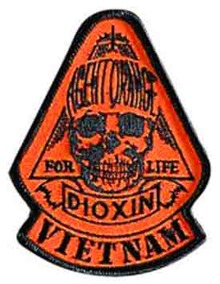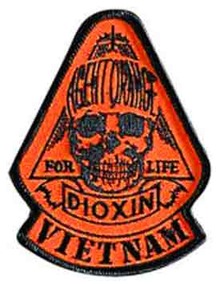 A U.S. veteran living in Tennessee has won what’s thought to be the first Veterans Administration claim for exposure inside the continental United States to Agent Orange, an herbicide that was used by the military to clear jungles during the Vietnam War.
A U.S. veteran living in Tennessee has won what’s thought to be the first Veterans Administration claim for exposure inside the continental United States to Agent Orange, an herbicide that was used by the military to clear jungles during the Vietnam War.
Agent Orange — which got its name from the color of the barrels it was shipped in — was among the herbicides used the U.S. military during the Vietnam era that were contaminated with dioxins, chemicals known to cause birth defects and genetic mutations as well as cancers. It was produced by companies including Dow Chemical and Monsanto.
Earlier this month, the VA granted the claim of James Cripps related to his exposure to the chemical while he was stationed at Fort Gordon, Ga. He sought compensation for medical conditions related to Agent Orange including chloracne, diabetes, and heart disease.
Cripps, who currently serves as the chair of the Vietnam Veterans of America Tennessee Agent Orange Committee, announced the news in an online veterans’ issues forum:
On Nov. 2, 2009, I won the first ever VA claim for Agent Orange exposure, “inside the Continental United States.” The claim was granted for Chloracne, Diabetes, and Heart Disease with ICD implant, as due to Agent Orange exposure at Fort Gordon, Ga., in the years 1967-1969. You will be able to read the Board Of Veterans Appeals detailed decision along with the supporting evidence at www.va.gov in a couple of months when it is posted. From the website choose Board of Veterans Appeals, then click on Decisions. Next type in the search box Docket No.08-11 937.
A Vietnam War-era Army veteran, Cripps worked as a game warden at Fort Gordon near Augusta, Ga. He was exposed to Agent Orange while spraying the chemical in the lakes around the fort to kill weeds. When he left the military he suffered from chloracne and later developed other health problems related to his exposure.
Documents obtained by WTVF NewsChannel 5 Investigates in Nashville, Tenn. showed that helicopters sprayed at least 95 gallons of Agent Orange at Fort Gordon in 1967. As the station reported last year:
… Cripps is on multiple medications and he’s struggling to pay his medical bills. And now the VA is actually garnishing his Social Security checks.
“We have discussed of late, even yesterday, the thought of suicide,” he confides.
After years of service, Cripps and his wife feel broken and betrayed.
“I can see why some veterans would give up,” Sandra Cripps says. “It’s not fair.”
Other stateside areas where Agent Orange use has been documented include Fort Chaffee in Arkansas and the Apalachicola National Forest in Florida.
In 1991 Congress passed the Agent Orange Act, giving the Department of Veterans Affairs the authority to declare certain health conditions related to Agent Orange exposure and making affected veterans eligible for treatment and compensation.
Among the longtime “presumptive conditions” are various cancers, type 2 diabetes, and chloracne. Earlier this month the VA added three new conditions to the list: Parkinson’s disease, ischemic heart disease, and B cell leukemias.
And it wasn’t only U.S. military personnel who were exposed to Agent Orange: Vietnam estimates that 400,000 of its people were killed or hurt by the chemical defoliant, 500,000 children were born with birth defects related to their parents’ exposure, and another 2 million people suffered related cancers or other illnesses.
This story originally appeared at Facing South.


